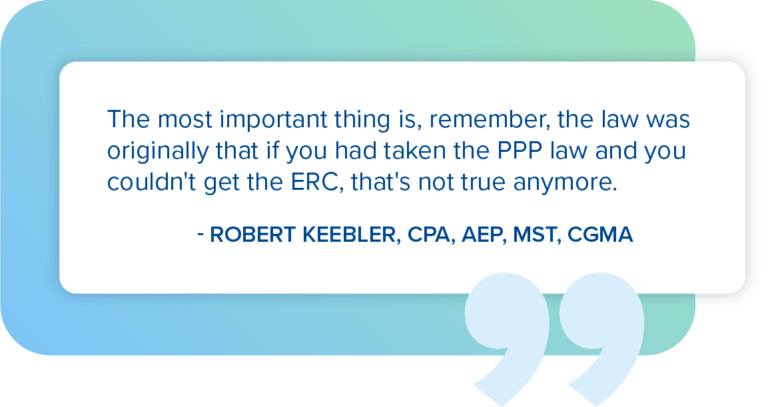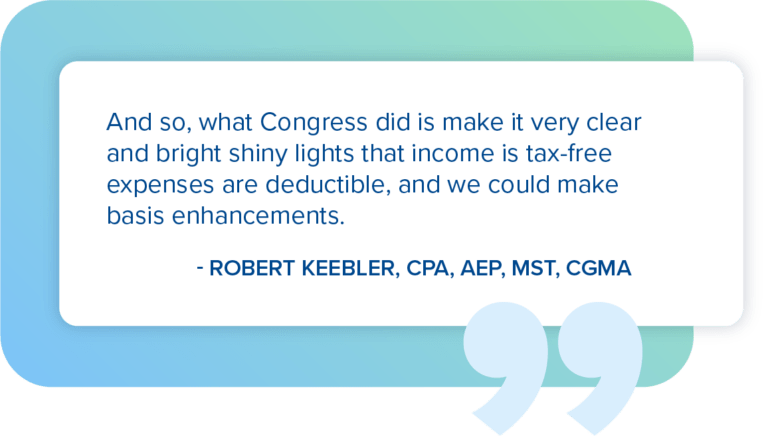
Q&A Special: American Rescue Act of 2021
Everyone wants more clarity and insight into the American Rescue Act ever since President Biden signed it into law late last week. Especially since the new stimulus payments went out and the IRS extended the filing deadline to May 17th.
Sharon Kreider of Western CPE interviews tax expert Robert Keebler in this insightful Q&A discussion about the American Rescue Act.
Robert Keebler delves into the impact on high-net-worth clients, the typical family of four, and the business-related tax ramifications.
Listen Now to the Q&A Special
Click the play button below to listen.
Transcript:
Sharon: Hi, I’m Sharon Kreider and I’m not in the Western CPE studio in Bozeman, Montana, instead I’m in Sunnyvale, California because it’s tax season. And because it’s tax season, I know that only a few of you who cannot sleep and suffer from insomnia have actually read the 600-page American Rescue Plan. We have with us, a guest, Robert Keebler, and we’re going to do a few FAQ, Q&A’s. I’ll ask some questions that I’ve been seeing on our various social media posts. I’ll ask the question and Bob will talk to you about the details that you need to know.
Sharon: Hi Bob, how will the ARA impact our high-net-worth clients?
Bob: That’s an excellent question, Sharon. What we’re thinking right now is most of these incentives will phase out. So most people, high-income clients, would have too high of an income to receive these benefits, child tax credit earned income credit. So we know that’s out there, but what’s in here for high-income people would be, if you own a restaurant, great benefits there. Additional PPP extension of the ERC shuttered venue grants. There’s really big things here. This is the Forrest Gump box of chocolate, there’s kind of something in here for everyone. I think certainly there are many things here that are geared to lower income individuals, but the business incentives clearly are going to help probably many people that have already established a fairly high income and fairly high net worth.

Sharon: How will ARA affect a typical family of four with the parents making $75,000 annually combined with the kids that are eight and five.
Bob: Let’s just start with the child tax credit. That family is going to receive for the eight-year-old, a $3,000 credit, and for the five-year-old, if they don’t turn five or don’t turn six, by the end of the year, they’re going to receive a $3,600 credit. So we can start there. Now also, there are the stimulus payments that are going to be coming out and that would be for four people at $1,400, people are starting to get those. So that would be another $5,600 would be coming out to that family.
Sharon: How should tax pros decide whether to file the 2020 return now or later to maximize the new economic impact payment, the $1,400 rebate?
Bob: That’s a very good question. Now let’s say your 2020 income was greatly enhanced from 2019 at $250,000, but your 2019 income was only $25,000. You would not submit your 2020 return, even if that means an extension until you actually receive your deposit. And then you would submit that return because the IRS is going to base it on the return they have in possession, which would be your 2019 return. So that is a strategy right now.
Sharon: All right, here’s another question for you, Bob. How should you advise your clients about Cobra subsidies paid by and reimbursed to the employer?
Bob: What’s going to happen with Cobra, it appears, at least my reading of the statute is if the employer is very generous and they decide to pay your Cobra payments, they would get a credit for 85% of that. So that’s a pretty big deal. That’s probably where the ball is going. The incentive here is for the employer to step up If they’ve laid people off and to pay for their health insurance.
Sharon: There are some business-related provisions in ARA and here are some questions for you to talk to us about.
–The limitation on excessive employee, remuneration compensation.
-The limitation on the excess business losses of non-corporate taxpayers.
I think we have an extension on the effective date of that.
-The employee retention credit change.
Again, I, I think you’ll be telling us about extensions.
-Credits related to paid leave and paid family leave and paid sick leave.
-What changes were made to economic injury, disaster loans?
Those are the EIDLS on the advances and restaurant revitalization grants.
I know that’s a whole list, but you’re looking at the list at the same time I do so I’d appreciate what you can do for us on those topics.
Bob: Let’s take those one at a time.
-IRC section 162M, excessive employee renumeration, expands the definition of a covered employee for who’s the deduction for compensation is limited, beginning after 12/31, 2026.
So, what we need to do is we need to look at this new definition and it’s going to apply on a going forward basis. They’re just going to expand that limitation to after December 31st, 2026.
Now the next thing is the excess business losses.
-IRC section 461L, limitation on excess business losses, was originally added by the tax cuts and jobs act and it was set to sunset at the end of 25. What this legislation does is pushes out one more year through 2026.
Bob: Now the employee retention credit is incredibly complex. Almost all the bills that have happened from cares forward have dealt with this. The most important thing is, remember, the law was originally that if you had taken the PPP law and you couldn’t get the ERC, that’s not true anymore. Can’t double dip, but you can combine those. So, don’t let anyone tell you can’t combine those.

Bob: Secondly, what this new statute does here is extends the employee retention credit through December 31st, 2021. It allows the credit to also offset the hospital insurance tax, expands the ability of the credit to some startups, and expands the definition of qualified wages for certain hard hit businesses to include the wages paid by all employees, beyond those just providing services. So, remember, the ERC is available when you have the PPP, but you cannot double dip. Okay. You’re not going to be able to double dip on that.
The family leave one is, is very interesting. It provides:
-An additional 10 days of credits for paid sick leave and increases the credit from 10,000 to 12,000 per employee.
-It retains the FFC IRA daily limit.
-It expands the list of reasons for paid leave, including for vaccination, and generally applies to wages from 4121 to 93021. And it even applies retroactively to self-employed people. And it has similar provisions to avoid double-dipping with other programs.
Now, an economic injury, a loan advances, and restaurant revitalization grants. The important thing is both of those are going to be tax-free, the expenses associated with those are going to be deductible and there’s going to be an increase in basis so that you can take funds out of both partnerships and S corporations.
Congress was very much concerned, it’s apparent, that the IRS wouldn’t issue another revenue ruling saying the income is tax-free, but the expenses are non-deductible. And so, what Congress did is make it very clear and bright shiny lights that income is tax-free expenses are deductible, and we could make basis enhancements. So that’s all very taxpayer friendly.

Sharon: All right. Well, I’m Sharon Kreider at Western CPE. Thank you for listening and thank Bob Keebler for spending his time with us on brand new law.
Bob: I want to thank you for listening to this Q&A that Sharon and I put together, and also want to encourage you to visit the one-hour webinar we put together on Western CPE. Thank you for joining us today.


